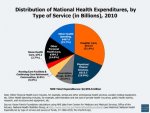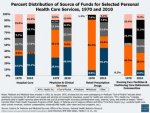From ABC News
How a $109K heart attack bill was slashed to $332
A Texas hospital that charged a teacher $108,951 [NOTE - That should be "nearly $164,951".] for care after a heart attack slashed the bill to $332.29 [NOTE - That should be "nearly $56,332.29".] Thursday — but not before the huge charge sparked a national conversation over what should be done to combat surprise medical bills that afflict a growing number of Americans.
The story of Drew Calver
was first reported by Kaiser Health News and NPR on Monday as part of the “
Bill of the Month” series, which examines U.S.
health care prices and the troubles patients run up against in the $3.5 trillion industry.
In Calver’s case, the 44-year-old father of two had suffered a heart attack in April 2017 and a neighbor rushed him to the nearest emergency room, which was an out-of-network hospital under his school district
health plan. His insurance paid the hospital nearly $56,000 for his four-day hospitalization and procedures to clear his blocked “widow-maker” artery.
But the hospital, St. David’s Medical Center in Austin, wasn’t satisfied with that amount and went after the high school history teacher and swim coach for an additional $109,000 in a practice known as “balance billing.”
COMMENT:-
The
Non-Resident per diem rate in BC's most expensive hospital's ICU is CDN$13,665 (roughly US$10,522.05) and in the least expensive it is CDN$8,120 (roughly US$6,252.40. The average over eight hospitals is CDN$10,420 (roughly US$8,023.40). At that average rate, the "nearly $56,000" that the insurance company paid out would have been enough to pay for "nearly 6.979 days" in a BC ICU. However, in BC doctors bill separately from hospitals, so the US bill that the insurance company paid is roughly the same as the BC bill would have been AND there would have been no "balance billing".
So, that leaves me with the question "What was the other $109,000 for?".
PS - The insurance broker that I linked to for the BC rates, recommends carrying at least US$50,000 in medical coverage if visiting BC. They also recommend that BC residents carry at least $5,000,000 in medical coverage if visiting the US. Ever wonder why the difference in cost for the same treatment?



